The rollout of the cannabis retail market has failed communities gravely affected by drug laws prior to legalization, advocates say.
From The Toronto Star by Danica Samuel June 29 2021
Tyler James, community outreach co-ordinator at Cannabis Amnesty, says that the system ought to consider the cannabis industry’s past, present and future under the Controlled Drugs and Substances Act (1996) and Cannabis Act (2018).
A 2017 Star analysis found people of the African diaspora with no history of criminal convictions were three times more likely to be arrested by Toronto police for possession of small amounts of marijuana than white people with similar backgrounds. The analysis found people of the African diaspora had been arrested and charged with possession at a significantly disproportionate rate in comparison to their population in Toronto as of the 2006 census.

James imagines a merit system that rewards retailers for employing individuals or supporting communities disproportionately affected by cannabis regulations in the past. This could mean employing Indigenous peoples or people of the African diaspora, utilizing craft suppliers not just large joint business ventures and donating to local community initiatives.
James says these small things could help pivot away from just owners reaping rewards from legalization and force multi-chain operators to provide greater considerations to different communities as well as expand employment pools beyond the current status quo. He says it’s a way to right previous wrongs and integrate people from the legacy market into legal cannabis. He says it could also help with a neighbourhood becoming oversaturated with pot stores.
“If they were to have done (a rollout) with a merit-based system that rewards integration (of) specific affected communities and individuals, as well as regulating distances between retail stores, in the long run, a lot more stores would have been better off and more successful.”
This October will mark the fourth anniversary of cannabis legalization in Ontario.
Since April 1, many businesses have won the Alcohol and Gaming Commission of Ontario’s selection lottery for the right to open cannabis stores. A Star analysis found a total of 582 locations entering the GTA market, out of 1,704 locations in Ontario; of those in the GTA, 291 are now authorized to open.
The Ministry of Attorney General said in a statement to the Star it didn’t have specialized employment measures in place for these stores nor has it considered a dedicated strategy for retail stores opening in certain neighbourhoods. But it pointed to a community review process , where residents can submit their responses on whether a proposed retail store is suitable for a location. This part of the process is during a 15-day public notice period issued for a business to obtain its Retail Operator Licence .
But James says based on his conversations with people who have not received amnesty for past criminal charges, the community feedback process doesn’t go far enough. (Though some pushed to get past cannabis convictions automatically expunged , the law passed in 2019 requires people to apply and wait for a pardon, and simple possession must be the only blot on their record; it was estimated at a parliamentary committee that only 10,000 people would qualify .)
Ish Aderonmu, who was charged in Philadelphia for selling marijuana in 2010, has witnessed the upsurge in cannabis retail stores since moving back to Toronto. Aderonmu says that the window for community feedback is not effective, and he finds that’s only one small piece of the larger problem.
“It’s important to target certain populations for employment, and for licensing,” Aderonmu said. “We can say we want the industry to be as diverse as possible, but that’s not possible if you don’t invite diverse people to come to the table.”
An example he references is California’s department of cannabis regulation’s social equity program (SEP), which he says “eliminates barriers for people that were harmed, so that they can enter into the legal cannabis market.” The SEP tool is used to acknowledge Americans affected by the war on drugs, and to support equal opportunity for them in California’s cannabis industry through business ownership and employment.
Aderonmu says a better rollout that would build trust in Canada’s system would identify people that have past criminal convictions and assist them with employment and ownership in an industry they are already versed in.
Sister and brother Ashley and Michael Athill are new to cannabis growing. Their family-run company HRVSTR sells its product to the Ontario Cannabis Store, which then sells and distributes to various retailers.
Loading…Loading…Loading…Loading…Loading…
Loading…
Coming from when cannabis was not legalized — which Ashley calls the “grey market” as an alternative to black market, which holds a stigma — she says she and Michael were familiar with the discrimination regarding policing of cannabis amongst people of the African diaspora.
“There are people in jail right now that were doing the exact same thing that the soccer moms are doing right now, and that’s not fair,” said Ashley, noting that it’s a great start that federal ministers are expediting pardons, but more has to be done.
“There should always and continuously be a discussion of how to get those individuals out of jail and (maybe) into the cannabis space where they can thrive,” Ashley said.
Michael added the war on drugs south of the border “did not need a passport to enter Canada.” He says it was at the forefront here.
“We’ve seen it, we’ve lived it, but we’re not here to point fingers, we’re here to find a solution to how we can get through all of this together right, and I think the bottom line is social inequality leads to injustice,” Michael said.
The siblings want to encourage individuals like Aderonmu, who have a minor criminal conviction, to get involved in the retail or manufacturing of cannabis.
“Institutions like Health Canada are looking at smaller pot convictions as something that’s not going to hurt your chances to become a business owner, or to actually obtain a job, that’s something that everybody should know, Black, white, doesn’t matter,” Ashley said.
The lack of conscious efforts for equity like the ones that Aderonmu and James yearn for could be what’s sustaining unlicensed retail stores that are still flourishing. According to the City of Toronto, since the Ontario Cannabis Control Act came into effect October 2018, the City has issued 107 charges to unlicensed property owners and 268 charges to operators.
James says that despite the government saying it is cracking down on the illicit market, “unregulated cannabis is easier to get than regulated cannabis,” and he doesn’t believe the accuracy of government numbers on stopping illegal cannabis — most users he knows don’t prefer the legal retail route.
To many, like Aderonmu, going the legal route means supporting a new “classist, caste system” against people who were doing the same thing all the retail stores are doing now.
“Ten years ago when it was illegal there were images of two Black people sitting in a park smoking a blunt, but now you’ve got images of two white blond women, smoking a joint, while having a coffee.”

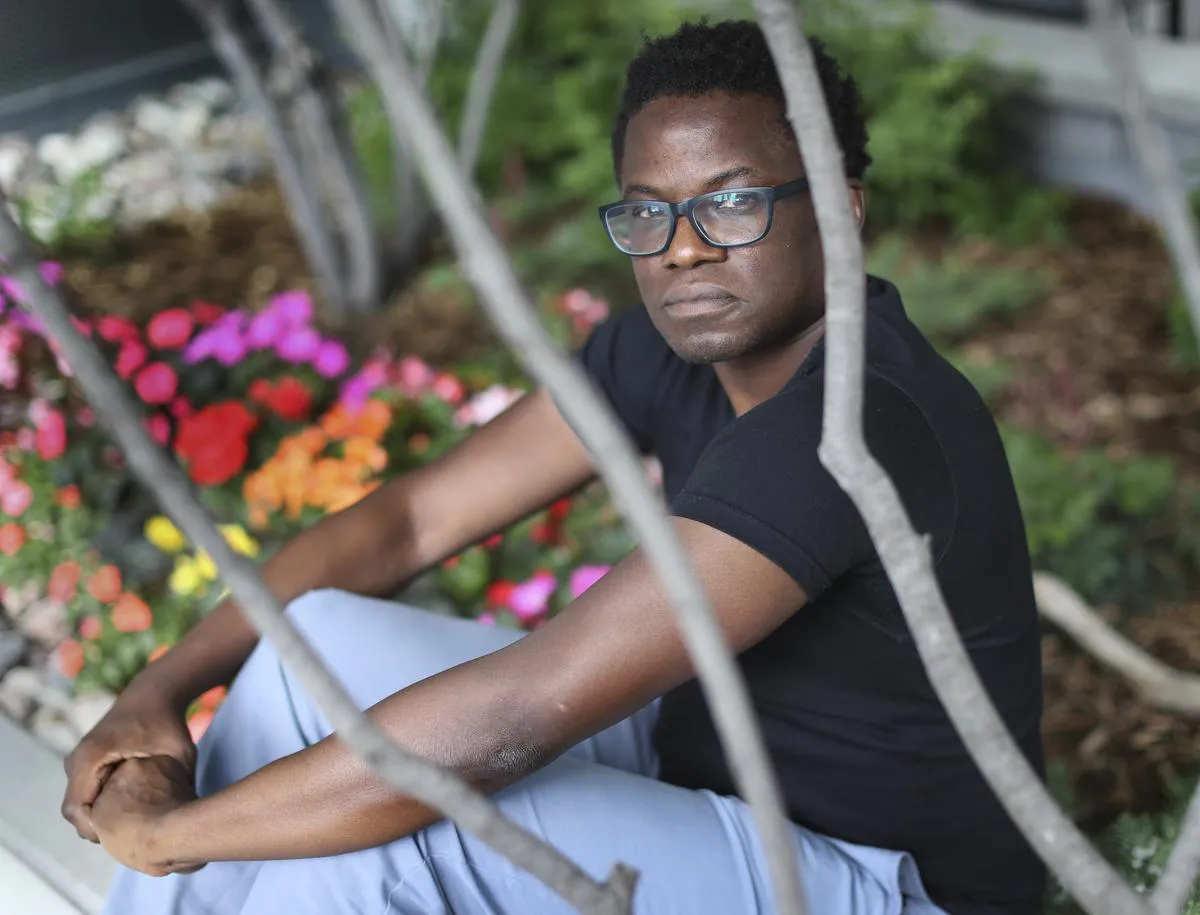





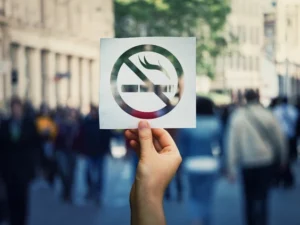




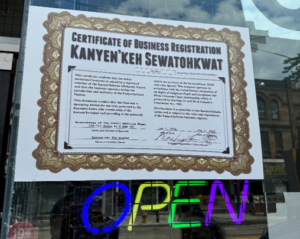




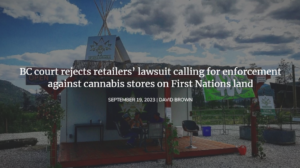
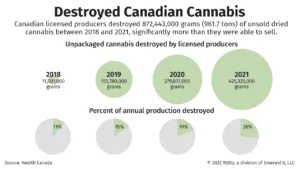


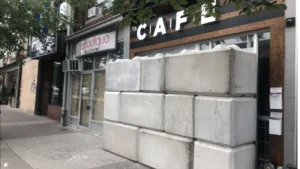
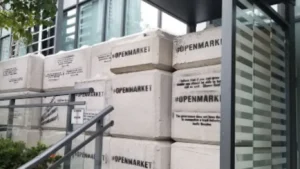
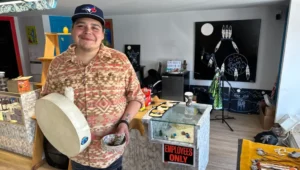

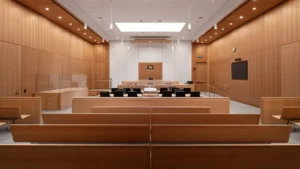
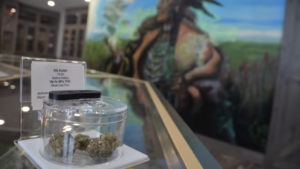
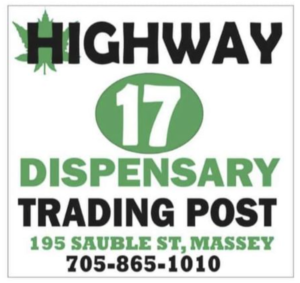

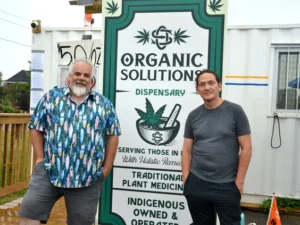

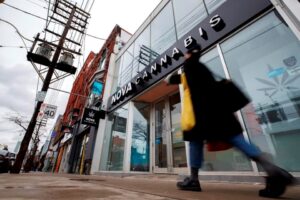
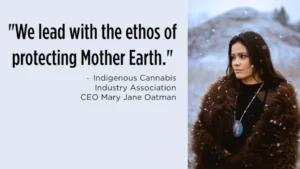




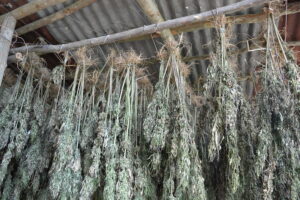

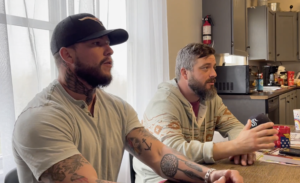

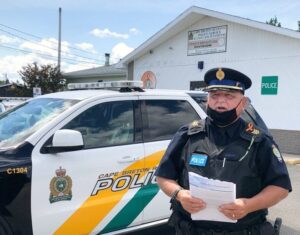
Comments are closed.